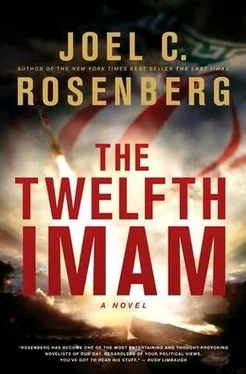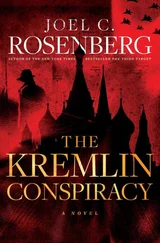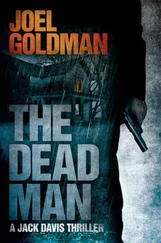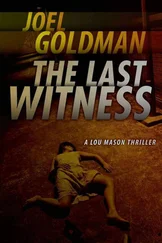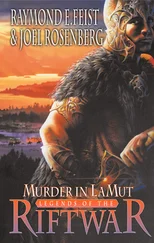“What’s that?” David asked.
“You cannot, under any circumstances, tell your parents, your brothers-anyone-about any of this. I cannot stress this point enough.”
“And if I do?” David wondered aloud.
“You’ll go straight to prison,” Zalinsky explained matter-of-factly. “You’ve already signed about a dozen nondisclosure forms. Believe me, we take this stuff very seriously.”
“You don’t have to worry about me,” David assured him. “But what do I tell my parents I’m doing?”
“You tell them you’re going to college in Paris,” Zalinsky said. “You’ve already applied and been accepted. You got a full scholarship. We’ve already rented you an apartment near campus and got you a post office box and a cell phone from a French company. Everything’s been thought of. It’s all in that folder. There are even brochures and other materials you can give your parents.”
David glanced through page after page of details.
“What about the job with SunTrust in Montgomery?” David smiled. “The one I supposedly applied for and am getting a background check for? What do I tell my parents and brothers about that?”
“Tell them you didn’t get it.”
“Why didn’t I get it?”
Zalinsky raised his eyebrows. “They don’t give bank jobs to kids with criminal records.”
The man had thought of everything, and for this David was profoundly grateful. For the first time, he realized just how close his life had come to going off the rails, and it scared him. But for Zalinsky’s intervention, who knew where he would have ended up? Now, however, he had a mission. He had a purpose. He finally knew why he had been born. He had a cause to live for-and to die for.
And yet, at the very moment he should have felt reassured, he couldn’t help but think of Marseille. Where was she? What was she going to do that summer? She still had two years of high school to go. Was she okay? He still missed her terribly. Did she miss him?
Arlington, Virginia
A black sedan pulled up just before dawn.
“Let’s go.”
Good morning to you, too, Jack.
“What about some coffee?” David asked instead, still jet-lagged after a sleepless night on the red-eye from Munich.
“We don’t have time,” Zalinsky replied with uncharacteristic impatience.
David shrugged, sighed into the frigid February morning air, and did as he was told. Zalinsky was old and tired and was supposed to have retired long before now. He was not a man to be trifled with. Certainly not today. David stared at the rapidly shrinking Starbucks in the side mirror as the two left Arlington for the George Washington Memorial Parkway, en route to the headquarters of the Central Intelligence Agency in Langley, Virginia.
The car was quiet for a few minutes. David looked out at the snowcapped spires of the Georgetown University campus and the ice on the Potomac River and thought about all that had happened in the years since he had been sent to Germany and Pakistan, and some of the bizarre events that had been occurring in the Middle East even in recent days.
“Did you see that story about the slaughter of all those Christians in Yemen?” David asked.
Zalinsky did not respond.
“Some cult leader just walked into a church in Aden, pulled out a machine gun, and killed, like, forty people,” David said, looking across the frozen Potomac. “Guy claimed he was preparing the way for the coming of the Islamic messiah or something.”
After driving awhile in more silence, David added, “Weren’t a bunch of priests and bishops assassinated in Yemen just before Christmas?”
Zalinsky still said nothing.
“That’s weird, isn’t it? I mean, I know it’s not my country of focus, but I’m just saying, you know?”
Zalinsky wasn’t interested. Instead, he dropped a bomb. “Look, David, I’m pulling you out.”
“I beg your pardon?” David replied, caught off guard.
“You heard me,” Zalinsky replied. “I’m reassigning you.”
David waited for the punch line. It never came.
“To what?” he asked.
“You’ll find out in a moment.”
“Why?”
“I can’t say.”
“Well, for how long?”
“I really can’t say.”
David briefly considered the possibility that his handler and mentor was kidding. But that was impossible. The man had never told a joke. Not once in all the years since their first meeting. Not once while David was in college. Not once while David was attending the Agency’s top-secret training facility in rural Virginia known as “the Farm.” Not once-according to six different sources David had “interviewed”-in the thirty-nine years that Zalinsky had worked for the CIA. The man was a walking Bergman film.
“What about Karachi?” David asked.
“Forget Karachi.”
“Jack, you can’t be serious. We’re making progress. We’re getting results.”
“I know.”
“Karachi’s working. Somebody’s got to go back.”
“Somebody will. Just not you.”
David’s pulse quickened. Zalinsky was off his rocker. If the man wasn’t driving, David would have been severely tempted to grab him by the lapels and make him start talking sense. For the past few years since getting out in the field, David had been given some of the lamest assignments he could possibly have imagined. Assistant to the assistant to the deputy assistant of whatever for an entire year at the new American Embassy in Baghdad. Coffee fetcher for the economic attaché at the U.S. Embassy in Cairo. Communications and intelligence liaison in Bahrain for a SEAL team assigned to protect U.S. Navy ships entering and exiting the Persian Gulf. That, at least, had sounded cool on paper, but it was mostly long hours of boredom mixed with still-longer hours of trivia and minutia. David had complained to Zalinsky that this wasn’t what he’d been recruited to do. He was supposed to be hunting Osama bin Laden, not babysitting destroyers and minesweepers.
Finally Zalinsky had relented and assigned him to a project hunting down al Qaeda operatives. So for the past six months, David had been stationed in Karachi, Pakistan, recruiting young technicians inside Mobilink-Pakistan’s leading cellular telecom-to do a little “side business” with Munich Digital Systems, or MDS, the tech company for which David now ostensibly worked. He paid these kids well. Very well. And discreetly. From time to time he threw little parties in his hotel room. Bought them alcohol. Introduced them to “friendly” women. The kind they were unlikely to meet in their neighborhood mosque. He added a little buzz, a little color, to their otherwise drab lives.
In return, David asked them to poke around inside Mobilink’s mainframes and ferret out phone numbers and account information of potentially lucrative future clients for his consulting work. The more information they provided, the more business MDS would get, and the more kickbacks he could pay these guys. Or so he told them. Unwittingly, these kids were actually giving him phone numbers and billing data for al Qaeda and Taliban terrorists, couriers, and financiers operating along the Afghan-Pakistan border.
The Pak technicians had no idea David was an American. They thought he was German. They had no idea he was working for MDS as a cover for his true identity as a CIA operative. They had no idea they were engaged in espionage. They just knew David was a twentysomething, like them. They thought he was a technogeek, like them. And they knew he had access to a lot of cash and was happy to dole it out generously to his friends.
And so far, so good. Over the last few months, David’s efforts had led to the capture or killing of nine high-value targets. Day by day, David was certain, they were getting closer to bin Laden. The whole operation had been Zalinsky’s idea, and until now, Zalinsky had given David every reason to believe he was thrilled by the results. Why, then, pull the plug now, especially when they were getting so close to their ultimate objective?
Читать дальше
